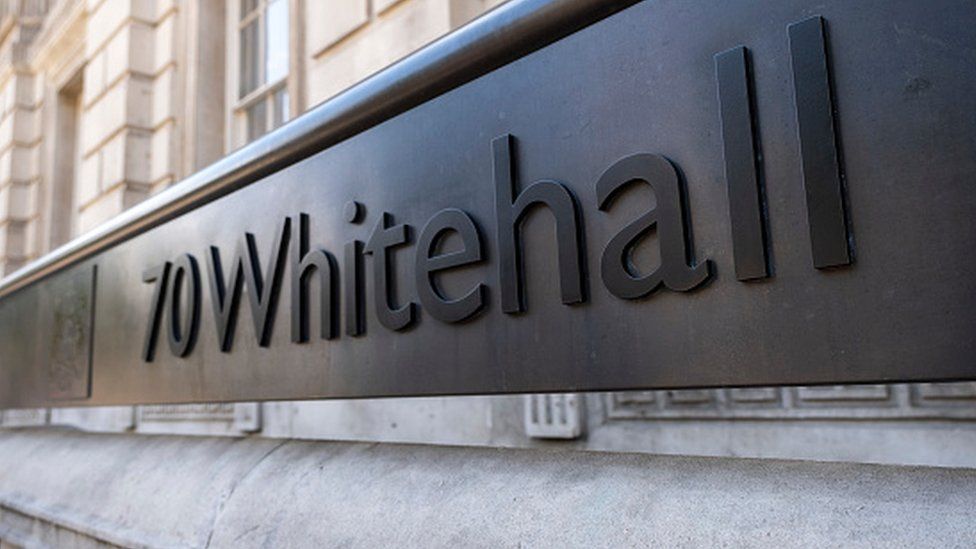ARTICLE AD BOX
 Image source, Getty Images
Image source, Getty Images
Allegations of bullying and racism within the Cabinet Office have been revealed in a leaked internal report.
The review, seen by the BBC, found one-in-ten members of staff had experienced bullying or harassment.
It also said there was a perception that those accused of bad behaviour were not being disciplined.
The Cabinet Office said the report showed "how seriously we take addressing this issue".
The department, which is at the heart of the government machine and is in charge of delivering key policies, is dominated by people with "posh" London accents, according to a staff survey.
"This could lead those from other socioeconomic backgrounds to feel like outsiders and self-conscious about the way they speak," the leaked report says.
Another staff member, quoted in the report, said: "We have to be a certain way in order for people around us to perceive us as being just as valid as someone who went to Oxbridge".
'Microaggressions'
Ethnic minority staff "described feeling as if they had to sometimes change their behaviour to fit in", the report says.
"This included changes to how they speak and present themselves to be less like their own identity or the communities they come from," it adds.
Female staff members reported a "macho culture" at the Cabinet Office
Some described how they "would often be the only ethnic minority individual in the room and described how this could make them feel like they did not belong".
They described how they felt their ideas were taken less seriously than those of their white colleagues, and reported "microaggressions, such as being mistaken for another colleague".
The report says gender was the second most cited reason for discrimination, with female participants describing "times where they felt their ideas were not respected".
Female staff members who took part in the survey described a "macho culture at the top of the organisation".
Formal complaints
A 2021 survey of staff found the Cabinet Office, which employs about 10,000 people, has the joint highest rate of bullying and harassment of all government departments, and the third highest rate of discrimination.
The leaked review document includes details from that survey and the results of interviews and focus groups with 145 members of staff, among other sources.
It was commissioned last October following pressure from the Public and Commercial Services Union (PCS), which represents civil servants.
The 2021 staff survey showed that of those who had experienced bullying or harassment in the past 12 months, 37% had reported these incidents.
But some staff feared they would end up with a "black mark" against their name, which would hamper their career, if they reported concerns.
And there was a perception of "a tendency within the Cabinet Office not to discipline perpetrators" of bullying and harassment, the report says.
The PCS said more than 80 of its members have formally complained about being racially bullied or profiled.
'Swift action'
The union withdrew in March from an internal review into racism after losing confidence in the process, accusing managers of presiding over a "paper exercise".
In a letter, the PCS called on the Public Administration and Constitutional committee to launch an investigation into racism within the Cabinet Office.
Labour said the revelations in the leaked report "must prompt swift action".
"The public also deserve to know how deep this problem goes across the civil service," Labour's shadow women and equalities secretary, Anneliese Dodds, said.
A Cabinet Office spokesperson said the department does not tolerate bullying, harassment or discrimination in any form.
"We fully accept the independent report's recommendations and we are implementing them in full, prioritising actions that will have the greatest immediate impact," the spokesperson said.
"This includes mandatory training for new line managers, developing more regular monitoring systems and ensuring senior leaders are accountable for leadership of respect and inclusion issues."

 2 years ago
39
2 years ago
39








 English (US)
English (US)